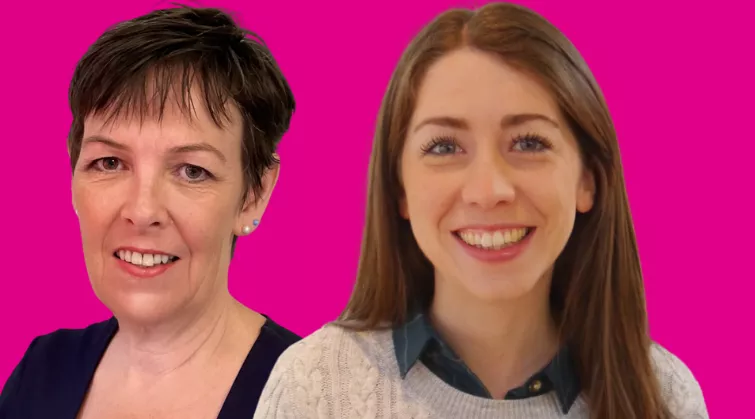
Some of you will remember the children’s story about Chicken-Licken...
One day Chicken-Licken was going to the woods when an acorn dropped on his head, and he decided that the sky must be falling down. He ran around telling everyone and gathered a group of friends who all ran off to tell the king that the sky was falling down.
We are well aware that there has been a lot of change over the last few years affecting training, the curriculum and RCPCH ePortfolio. And it must feel like lots of acorns have been falling on your heads. But we are here to tell you that, as Progress+ is implemented at the start of the next training year in August/September, the sky will not fall down!
The training ethos that started with Progress and continues with Progress+ is about training paediatricians who can manage children and their families holistically, and is grounded in principles of generic professional capabilities...
What's changed and what's the same...
There are two main elements to Progress+: the curricular content and the structural change from a three-level training programme to a two-level training programme.
The Learning Outcomes and the Key Capabilities are almost identical between the Progress curriculum, which trainees have been on for the last three-four years, and Progress+.
The Key Capabilities, which were aligned to the current three levels of training, have been adjusted to fit into a two-level programme. Some of the phrasing has been streamlined. And the journey towards a holistic, whole person approach has continued with more reference to mental health - specifically referenced in Learning Outcome 5 (Health Promotion and Illness Prevention).
As the Key Capabilities have changed very little, the evidence already in your RCPCH ePortfolio will continue to be mappable to Progress+, tags will be transferred over and no information will be lost, as we explain in this short video.
Any checking and troubleshooting after the transition should be straightforward, and the College's Training & Curriculum team will be available to help.
Moving to a two-level training programme
Of course, one possible anxiety about Progress+ is the structural change in moving to a two-level programme. It feels intuitive for training to be two levels, and this change brings us into line with other medical training pathways.
After the transition to Progress+, you will still either be on the tier 1 or tier 2 rota, you will take on more responsibility as you move through the training years and you will choose which pathway to follow as a more senior trainee (specialty level training in general paediatrics or sub-specialty training). So, it won’t feel very different.
Trainees due to CCT (Certificate of Completion of Training) before 15 September 2024 can remain on Progress. Everyone else will move to Progress+. You will be on an eight-year pathway (for those now in Level 3 training), a seven-year pathway (for those now in Level 1 training) or have a choice (for those in Level 2 at the transition).
We are aware that an unintended side effect of the change to a seven-year programme is a potential impact on the pay progression scale. We have worked out a way of managing this with the least risk of disruption, so that nobody misses out on their expected pay progression point.
You can download the PDF below
More flexibility lets you tailor your training pathway
All of the Key Capabilities in Progress+ are achievable in existing training settings. In the main, the current posts will continue to be used, and schools are looking at how they structure placements. The vast majority of trainees will continue to spend time in acute general and specialty paediatric posts and community posts, and can expect to spend six to 12 months in neonatal posts during core training.
But, the flexibility of Progress+ means that there are no mandated specific six-month posts, and schools can be creative in how they offer broad training experiences including opportunities to work and train beyond the acute settings and to tailor training pathways more towards trainees’ individual career aspirations.
The training ethos that started with Progress and continues with Progress+ is about training paediatricians who can manage children and their families holistically, and is grounded in principles of generic professional capabilities. Our move to a ‘high level’ curriculum such depends on learning through a whole person approach.
Good longitudinal supervision will enable trainees to think about their progress in the round and to progress as they acquire capabilities, rather than be marked off in six-month chunks of ‘time served’.
This will be underpinned by appropriate assessments that look at how doctors can put it all together to practice effectively and increasingly independently. The ECAT (Entrustment with Care Assessment Tool) is already available - you can now use it during Level 1 training as part of preparing for and demonstrating readiness for tier 2 working. Subject to GMC (General Medical Council) approval, ECAT is likely to be a mandatory assessment before independent tier 2 working. We believe it has real value throughout the training pathway - so watch this space for how it might develop.
Don't forget to check our resources
You can find helpful resources on our Progress+ web pages, including the handbook, Paediatrician of the Future and our Principle of the month series with members' videos and case studies.
The tale of Chicken-Licken did not end well for the little bird or their friends. But as the little acorn of Progress+ falls into place, we are confident that the sky is not going to fall down and, like an oak tree, the training pathway can grow and strengthen.
With best wishes,
Cathryn and Emma









